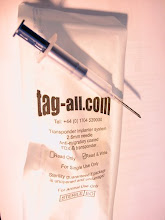I received an envelope from Chase. It contained a new debit card and a slip of paper. The paper mentions that my new card features blink, which allows contact-less payment. Initially, I questioned the security of my finances. What would happen if I walked past the checkout counter at just the right time? Could my account be debited for someone else's purchase?
I searched the slip of paper for any documentation, but I found little more than a statement claiming that I will have Zero Liability for any unauthorized card transactions, made in certain fashion, when reported promptly.
Since this notification concluded that the security of my finances would be in jeopardy by activating this debit card, I searched the paperwork for any way to opt out of the program.
I found nothing, so I called the customer service number, and asked about blink. The gentleman I spoke with didn't seem to know anything about it. He kept asking for personal information so that he could access my account. I didn't see why he would need to access my account; I just had some questions about blink. He asked several times for my social security number, and every time he was denied. I let him know that the slip of paper says it works anywhere that PayPass works. He seemed to be able to find some information about PayPass, which he shared with me. When I asked what company he worked for, he told me Washington Mutual. I found it funny that Chase took control of WaMu, and then sent out new debit cards to WaMu customers with technology that WaMu representatives have never been introduced to - and using the WaMu customer service system to respond to inquiries.
He told me that one of the very important functions of PayPass is that it contains an RFID tag, and that it is virtually impossible to ever change your PIN. I could not understand the benefit of the latter, and he explained that if I ever lost my card, they would mail a new one to me without resetting the PIN. It seemed dangerous to me - if someone found my card and discovered my PIN, would they have permanent access to my account? I was certainly interested in this RFID tag, and thoughts of potential horrors associated with it flooded my mind. I asked how to opt out, since the letter also told me my current RFID-free card would expire much earlier than the date stamped on it. There was nothing he could do. Any card I would get would have the tag embedded behind the logo.
I chose not to activate the card. Instead, I'm going cash. Even if I store my paycheck at the bank, I will be withdrawing cash once weekly at maximum. I took the card and shredded it with scissors until I found the RFID tag. It was right under the blink logo.
Subscribe to:
Post Comments (Atom)

Great Blog! I have also made a couple posts regarding a couple RFID concerns. Feel free to link to my posts anytime:
ReplyDeleteManufacturing Consent Starts Young
Coming May 2009